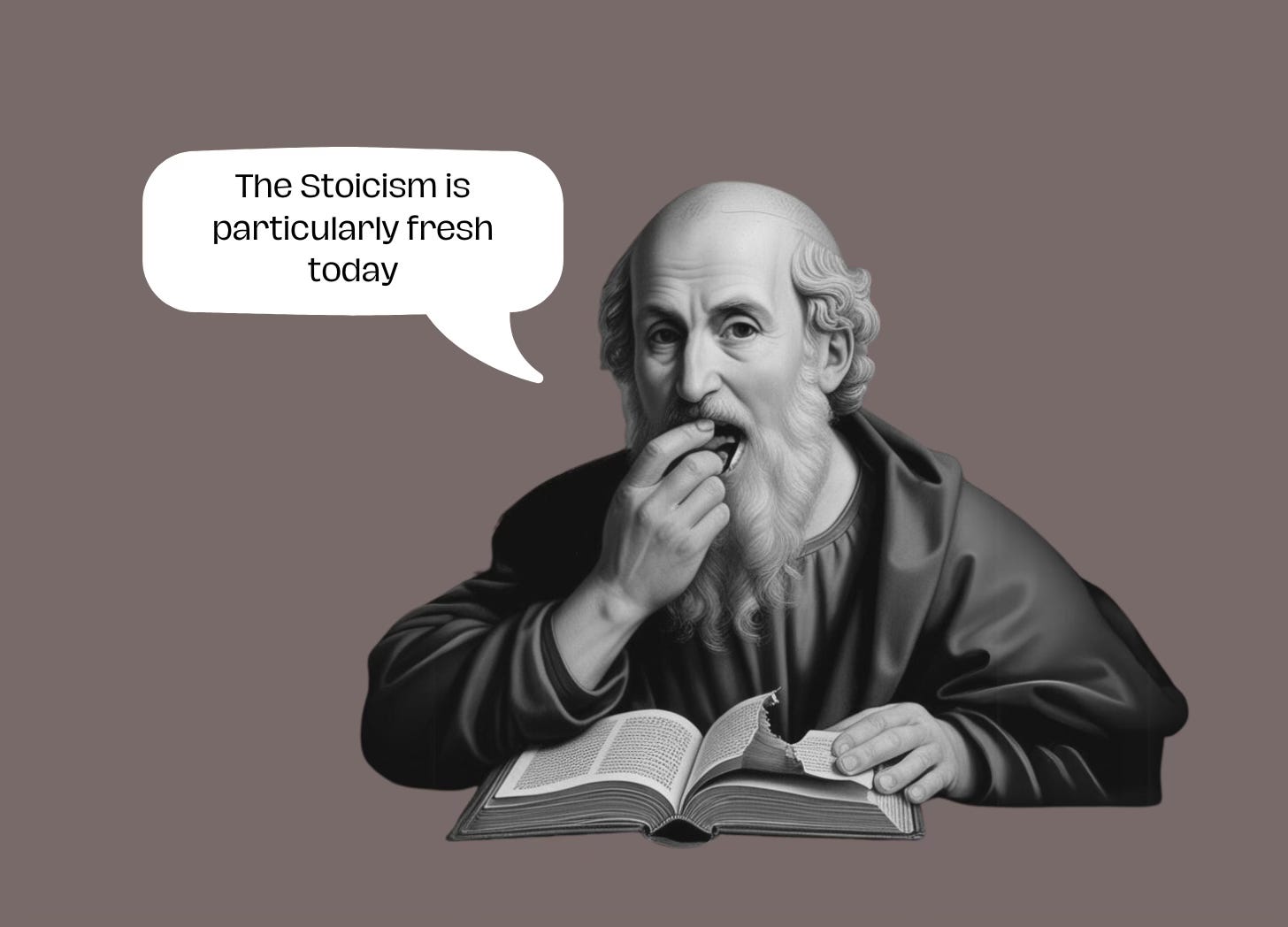We Are Who We read
The Stoic influence on the Apostle Paul
I’ll be using some theological terms in this newsletter - if you’re comfortable with them, keep on reading. If you have no clue what I’m talking about, no problem at all. Scroll down a bit and below every section I have small explainers.
What you’re reading now is part of a series where we're taking a step back and try to gain a better perspective on the infamous "Clobber Verses."
Don't worry, I won't rehash the same old arguments. Instead, I'll explain why I believe there are no clobber verses in scripture and why focusing on them might be damaging to the queer community in the long term.
As a matter of fact, we don’t need a magnifying glass to understand what the Bible says about certain topics. This understanding isn't just about queer issues - we could apply the same approach to female leadership, for example. It’s the understanding that sometimes we use conservative hermeneutics in a progressive context.
Here's the thing: During our deconstruction journeys, many of us got comfortable questioning certain things, but we never really changed our cookbook i.e. we're still using conservative hermeneutical methods, which don't leave much room for ambiguity. They draw hard lines between right and wrong, good and evil, pure and contaminated. So while we might have realized it's odd that the God who created us would reject some of us for loving someone of the same sex, we're still trying to make the text say what we hope it says. In this case, it may be hard to believe that Paul would condemn gay people, so surely we must be misunderstanding him, right?
This is where intersectional theology comes in, like a surprise ingredient that changes the whole flavor of the dish. It tries to amplify voices from the margins - you know, the ones that are usually drowned out by the noise of the patriarchal society of the first century.
When you listen to those voices, you hear a completely different story. So let’s listen to them today and see if they can offer a fresh perspective. A perspective that will require us to get comfortable with ambiguity.
I believe that the bible neither condemns nor condones homosexuality, and - here's the kicker - that leaves room for the possibility that Paul was a misogynistic and homophobic guy who can still give us some spiritual direction. It's like finding out your problematic uncle has some good recipes - you can appreciate the cooking without endorsing the cook.
Clobber Verses refer to the handful of Bible passages often used to condemn homosexuality. They're called "clobber verses" because they've been used to "clobber" or attack LGBTQ+ individuals.
Hermeneutics is the theory and methodology of text interpretation, particularly the interpretation of biblical texts, wisdom literature, and philosophical texts.
Intersectional theology considers how various social categorizations such as race, class, gender, and sexual orientation interconnect and influence religious interpretation and experience.
Romans: A Complex Biblical Debate
Romans 1:26-27 might be the toughest cookie in the biblical batch. Last week, we looked at how we can better understand passages in Corinthians and Timothy by digging into the meaning of words like "arsenokoites" and Romans doesn’t quite fit that mold. We could try to explain it away like some might view Old Testament passages through the lens of covenant theology (though we'll chat about some potential issues with that approach in a future newsletter). But Romans? It's a whole different layer of the cake.
Keep reading with a 7-day free trial
Subscribe to Like Quiche to keep reading this post and get 7 days of free access to the full post archives.




